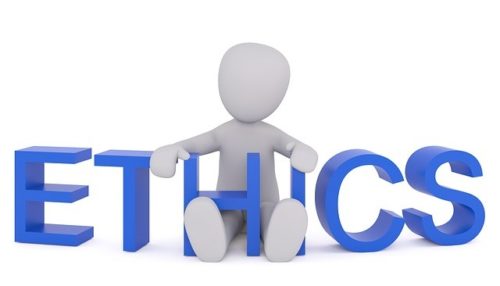-
Pennsylvania 6 Credit Bundle with Ethics - All Courses approved in Pennsylvania Esquire CLE is an Approved Pennsylvania Provider The Supreme Court of Pennsylvania Board on Continuing Legal Education of CLE course Provider #9745 Bundle Courses Include: Overview of the Freedom of Information Act (2 Credits) Fair Debt Collection Practices Act (1 Credit) Opening Statement As a Story 101 – (1 Credit) The Impact Of Internet and Sports Betting for Lawyers (1 Ethics) Effective and Ethical Use of Experts (1 Ethics)
-
A Lawyer’s Guide to Ethics and Ethical Networking in a Virtual World As an attorney, you are in the business of relationships. Whether you are in a big law firm that has to participate in “Beauty Contests” (RFPs) or a solo practitioner, whether you are a new attorney, a mid-level associate or managing partner, people do business with People “they know, like and trust.” The relationships you create will allow you to build the practice you want and networking is still the best way to create those relationships. You will specifically learn: How to define networking in new way Why networking is the best way to become a Rainmaker What skills you can learn networking that will benefit every area of your practice Where to network for the best results How to work a room Fun tips and tricks to use to break the ice How to network if you are an introvert An overview of how use social media for networking purposes The Rules of Professional Conduct you need to know to keep your networking ethical as well as interesting
-
Intermediate Topics: TITLE IX In this timely and compelling program, attorney, Adria L. Silva presents, “Intermediate Topics: TITLE IX”. Attorney Silva begins the program with an overview of TITLE IX basics and who can be sued within the Statute of Limitations. The program continues with a discussion of TITLE IX v. TITLE VII. Attorney Silva then covers applicable case law and intermediate topics such as internal investigations, sexual harassment, and gender discrimination. The program concludes with an explanation of the Family Education Rights and Privacy Act. This program is for any attorney. Agenda:
- TITLE IX Basics
- Who Can Be Sued and SOL
- Conditions Precedent
- TITLE IX v. TITLE VII
- Internal Investigations
- Sexual Harassment
- Gender Discrimination
- Retaliation
- Family Education Rights and Privacy Act
-
Principles for a Successful Jury Trial In this timely and compelling CLE program, attorney, Bernie Brown presents Principles for a Successful Jury Trial. Mr. Brown covers everything from selecting the best jury to examining witnesses, and approaches to successful jury verdict. With Mr. Brown's extensive experience, attorneys will be able to walk into a jury trial with confidence and the skills they need to succeed. Agenda: Preparing for Trial Dealing with Witnesses and Evidence Selecting and dealing with Jurors Opening and Closing Arguments Winning Attitude
-
Introduction to Family and Employment Immigration Law
-
Oklahoma 12 Credit Bundle with Ethics - All Courses Approved in Oklahoma Bundle Courses Include: Lemon Law (1 Credit) Information Law Firms Collect and Store – What to do in the Event of a Cyber Breach? (1.5 Credits) Navigating Malpractice Critical Elements and Defenses (1.5 Credits) Civil Settlement Techniques (2 Credits) Religious Land Use and Institutionalized Persons Act (2.5 Credits) Welcome to the NFL, Rook! Lawyers Wrangling Elites & Egos (2 Credits) Ethical Issues - Pro Bono Representation: Help the Profession Help Others (1 Ethics Credit) Ethical Obligations for Clients with Mental Health Impairments (1 Ethics Credit)
-
Benefiting from New Markets Tax Credits In this timely and compelling CLE program, attorneys, Julia Fendler and Trey Parker present “New Market Tax Credits”. The New Markets Tax Credit (“NMTC”) Program is administered by the Community Development Financial Institutions Fund (the “CDFI Fund”) of the United States Department of the Treasury. The NMTC Program is a federal statutory program, created in 2000 and currently extended through 2025, that is designed to encourage capital investment in low-income communities that have had inadequate access to capital. It is codified in Section 45D of the Internal Revenue Code. This program is for any attorney. Agenda:
- Program Basics
- Major Players and Definitions
- Application and high level NMTC allocation facts
- What can NMTC proceeds be used for?
- Project Requirements
- Secondary criteria
- Typical Transactions
- What Other subsidies work with NMTCs?
- Conclusion
-
North Dakota 3 Credit Ethics Bundle Courses Include: Ethics in Business Law Ethics Compliance for Solo Practitioners No One Makes It Out Unscathed: The Effects of Personal Trauma and Stress On Our Lives
-
Effective Legal Representation In Today's Federal Social Security Disability Arena In this timely and compelling CLE program, attorney, Scott Daniels teaches Federal Social Security Disability Representation Mr. Daniels begins the program with an overview of applicable laws, eligibility, and standard for disability claims. Attorney Daniels then proceeds to cover various types of disability programs. He also discusses the five steps in evaluating a disability claim. Mr. Daniels concludes the program with case examples and an overview of the Federal Disability Claim Process and who bears the burden of proof. This program is a must watch for any attorney who wants to learn more about Federal Disability Claims. Agenda
- Applicable Social Security Laws
- Types of Disability Programs
- Evaluation Process
- Federal Disability Process
- Case Examples
-
Nebraska 5 Credit Bundle with 2 Ethics - All Courses Approved in Nebraska Bundle Courses Include: Story Telling in the Courtroom (1.57 Credits) Civil Settlement Techniques (1.55 Credits) Unauthorized Practice of Law: Ethical Dilemmas and the Rule of Law (1 Professional Responsibility/Ethics Credit) Ethical Obligations for Clients with Mental Health Impairments (1 Professional Responsibility/Ethics Credit)
-
Virginia CLE Bundle – All Courses Approved by the Virginia State Bar Courses Include: Information Law Firms Collect and Store – What to do in the Event of a Cyber Breach? (1.5 Credits) Religious Land Use and Institutionalized Persons Act (2 Credits) Civil Settlement Techniques (1.5 Credits) Paying for Referrals: A Danger to the Payor and Recipient’s Freedom (1.5 Credits) Ethical Obligations for Clients with Mental Health Impairments (1 Ethics Credit) Navigating Ethics with Expert Witnesses Story (1 Ethics Credit)
-
Off the Clock: Professional Ethics On Personal Time Most legal ethics programs focus on how applicable rules, laws, and related opinions govern a lawyer´s behavior when he or she is practicing law. But what rules apply to a lawyer´s behavior off the clock? The answer is: ethically, a lawyer is never off the clock. This program will focus on the rules, statutes, case law, principles, and guidelines that govern a lawyer’s actions, conduct, and speech, during personal time. It will break down and analyze Professional Rule of Conduct 8.4, Misconduct, breaking down each subsection into informative, practical examples, and present practical illustrations and informative case examples from around the country of how off the clock behavior can have on the job consequences.





